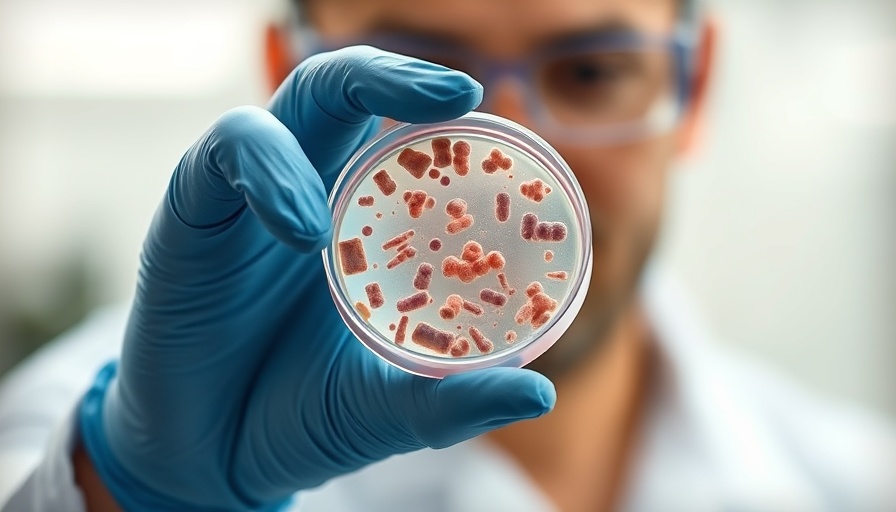
Plastic-Eating Bacteria: A Threat to Hospital Safety
In alarming news, researchers have identified a potentially deadly bacterial superbug that is silently spreading through hospital environments. This bacteria, Pseudomonas aeruginosa, possesses a troubling ability: it can feed on plastics found in essential medical devices. From sutures to catheters, the implications for patient safety are profound.
The Unsettling Discovery
Scientists at Brunel University in London recently published a groundbreaking study in the journal Cell, revealing that Pseudomonas aeruginosa not only resists conventional antibiotics but has adapted to digest polycaprolactone, a common plastic in medical tools. Ronan McCarthy, the study's lead, warns that this trait allows these bacteria to create resilient biofilms, which can sustain them in the sterile environments of hospitals.
Why This Matters to You
This discovery isn’t just a distant scientific issue; it could impact every patient visiting a hospital. The ability of P. aeruginosa to thrive on medical equipment challenges traditional infection control measures, creating a situation where bacteria could outsmart the sterilization processes that keep patients safe. As professionals, gym enthusiasts, and health-conscious individuals, understanding bacteria’s evolving capabilities is essential to prioritizing health.
Increased Risk in Vulnerable Populations
Particularly concerning is the threat this superbug poses to individuals with weakened immune systems, such as those undergoing surgery or dealing with chronic illnesses. The Centers for Disease Control and Prevention (CDC) already recognizes P. aeruginosa as a significant cause of nosocomial infections, including pneumonia and urinary tract infections. This development accentuates the urgency for improved hospital protocols to guard against this emerging threat.
A Need for Change in Medical Practices
With plastics everywhere in modern medicine, researchers are calling for a reevaluation of how medical devices are designed and utilized. The concern extends beyond infection rates to the operational effectiveness of critical tools. The plastic-eating enzyme could potentially weaken instruments like ventilators and surgical meshes, thereby affecting their efficiency in life-saving situations. This is a pressing issue that calls for immediate attention from health professionals and policymakers alike.
Future Insights: The Path Ahead
As the medical community grapples with these challenges, further research into Pseudomonas aeruginosa is imperative. We must assess the full extent of this bacterium's capabilities and its implications for healthcare practices. The adaptive trait of digesting plastic opens up avenues for innovation in how we approach hospital hygiene and infection control.
Your Role in Health Safety
As a member of the community, being informed is critical. Whether you are a professional advocating for safer healthcare protocols or simply a concerned citizen, understanding the challenges posed by evolving bacteria can foster proactive discussions about health safety. Consider advocating for awareness around infection control practices, especially as they relate to the materials used in medical settings.
Take Action: Be Informed and Advocate
The discovery surrounding Pseudomonas aeruginosa compels us to reexamine our health systems deeply. Consider revisiting not only our knowledge on medical hygiene standards but also discussing these findings within your circles. Share your thoughts on how communities can better protect public health by supporting enhanced medical device designs and hospital protocols.
As healthcare evolves, so too should our understanding and advocacy around the implications of such findings. Now is the time to be proactive about your health and engage in community dialogues. Let's embrace this opportunity to push for safer environments in healthcare.
 Add Row
Add Row  Add
Add 




Write A Comment